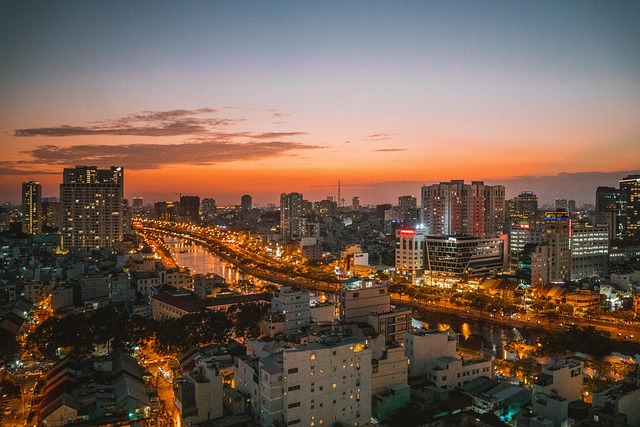Karachi, Pakistan's economic hub, boasts a diverse educational landscape led by government schools renowned for comprehensive curricula and robust infrastructure. Scheme 33, an innovative initiative, aims to provide equal access to quality education, transforming the city's educational tapestry through modern facilities, skilled teachers, and updated curricula, fostering academic growth and inclusivity despite challenges.
Karachi, Pakistan’s vibrant metropolis, boasts a diverse educational landscape, with government schools playing a pivotal role in shaping young minds. This article delves into the comprehensive overview of Karachi’s government schools, focusing on Scheme 33—a groundbreaking initiative aimed at enhancing educational opportunities for students. We explore the benefits and challenges from a local perspective, highlighting the impact on Karachi’s youth and the broader community.
- Karachi's Government Schools: A Comprehensive Overview
- Scheme 33: Unlocking Educational Opportunities
- Benefits and Challenges: A Local Perspective
Karachi's Government Schools: A Comprehensive Overview

Karachi, Pakistan’s economic hub and largest metropolis, boasts a diverse educational landscape, with government schools playing a pivotal role in shaping the city’s future generations. These institutions are renowned for their comprehensive curriculum and robust infrastructure, catering to a vast student population from varied socio-economic backgrounds. Karachi’s government schools have evolved over the years, becoming centers of excellence that offer quality education, fostering academic excellence and personal growth among students.
The city’s educational system is characterized by a network of well-established government schools, strategically located across different neighborhoods. These schools are not just places of learning but also vibrant communities where students from diverse cultural backgrounds come together. With a focus on holistic development, they provide not only academic rigor but also extracurricular activities, sports, and arts programs that enrich the overall educational experience. Karachi’s commitment to public education is evident in these institutions’ resilience and continuous efforts to bridge the gap between access and quality, ensuring that every student has the opportunity to thrive and succeed.
Scheme 33: Unlocking Educational Opportunities

Scheme 33, a pioneering initiative by the government of Karachi, has emerged as a game-changer in the educational landscape of the metropolis. This comprehensive program aims to bridge the gap between quality education and accessibility, ensuring that every child in Karachi has an equal chance to thrive academically. By implementing this scheme, the government is unlocking unprecedented opportunities for students from underprivileged backgrounds, empowering them to compete on a level playing field with their more privileged peers.
The heart of Scheme 33 lies in its commitment to providing top-notch educational facilities and resources to public schools across Karachi. This includes everything from modern infrastructure and well-equipped classrooms to trained and passionate educators. Through this scheme, the government is not just building schools; it’s cultivating a vibrant learning environment that fosters curiosity, innovation, and critical thinking—essential skills for the students of today and tomorrow.
Benefits and Challenges: A Local Perspective

Karachi, as Pakistan’s economic powerhouse, witnesses a diverse range of educational experiences through its government schools Scheme 33. This initiative brings quality education to the forefront, offering numerous benefits for local students. Access to modern infrastructure, well-trained educators, and updated curricula empowers learners with essential skills, fostering their academic growth. The scheme also promotes inclusivity by ensuring equal opportunities for all, regardless of socio-economic backgrounds. Students from diverse communities come together, enriching their social experiences and cultivating a spirit of unity.
However, challenges remain in this journey towards educational excellence. Overcrowded classrooms and resource scarcity are common issues, hindering the full potential of both students and teachers. The local community often faces difficulties in accessing these schools due to limited transportation and geographical constraints. Moreover, keeping up with rapidly evolving teaching methodologies while managing budget constraints can be a complex task for educators. Despite these challenges, the scheme continues to strive, aiming to bridge the educational gap and provide a brighter future for Karachi’s youth.
Karachi’s government schools, through Scheme 33, offer a promising path towards enhancing educational accessibility. This initiative not only addresses the city’s diverse needs but also presents a comprehensive learning environment. While challenges remain, the benefits are clear, fostering growth and development for students across Karachi. By leveraging local insights and continuous improvement, these government schools can serve as a beacon of quality education for all.

Leave a Reply
You must be logged in to post a comment.